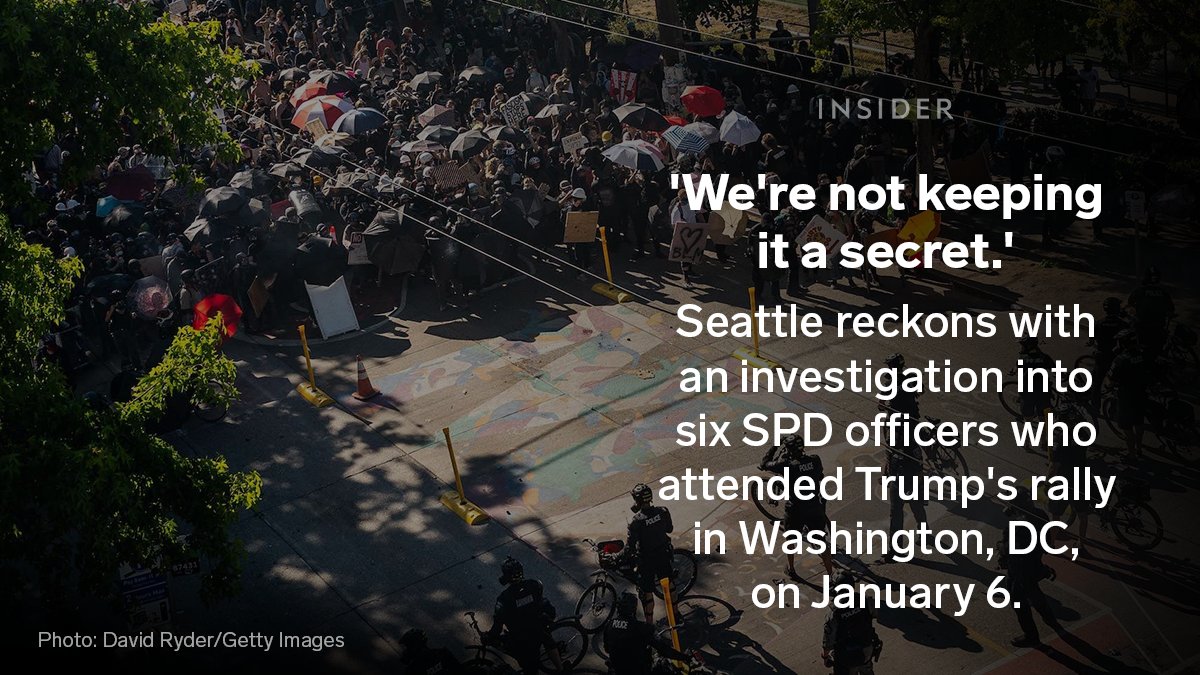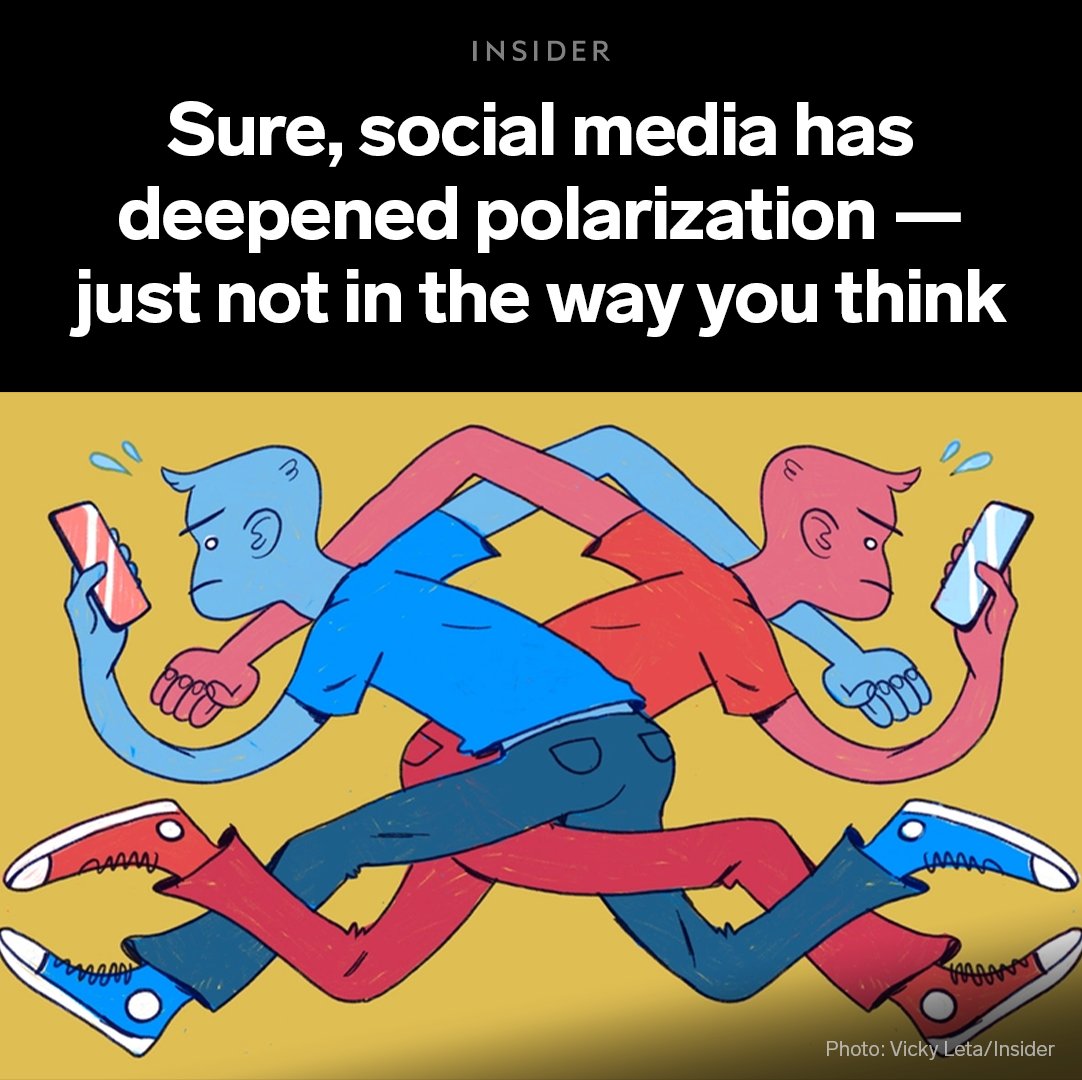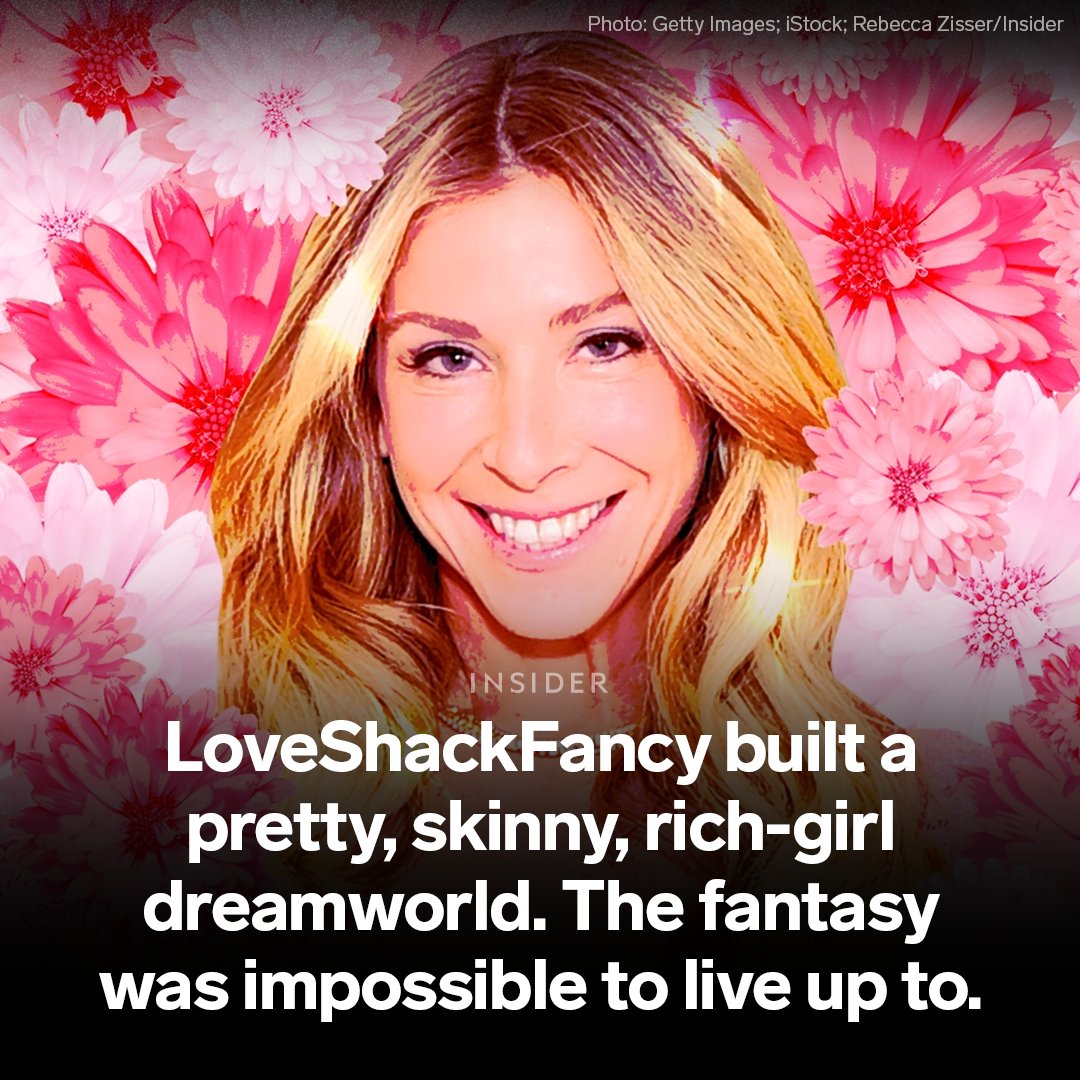Seattle is reckoning with the news that at least 6 Seattle Police Department officers were in Washington D.C. on the day of the Capitol siege — the largest group of officers from a police department in the nation.
Advocates say the problem runs deeper.👇
businessinsider.com/seattle-police…
Advocates say the problem runs deeper.👇
businessinsider.com/seattle-police…

On January 11, 2021, SPD Chief Adrian Diaz said the Seattle Office of Police Accountability would investigate to determine whether SPD policies were violated and “if any potential illegal activities need to be referred for criminal investigation.” businessinsider.com/seattle-police… 

Despite its liberal reputation, Seattle’s politics are more complicated. The tension between the police department, city leadership, and progressive activists in the city often garners national attention. businessinsider.com/seattle-police… 

A day after the Capitol riots, current officer and president of the Seattle Police Officer’s Guild, Mike Solan, quote-tweeted a right-wing provocateur, which suggested that Black Lives Matter and antifa activists infiltrated the pro-Trump rioters.
businessinsider.com/seattle-police…
businessinsider.com/seattle-police…
The OPA initiated an investigation into Mike Solan’s tweets and all nine Seattle council members have called for Solan’s resignation.
Seattle City Council President and mayoral candidate Lorena Gonzalez told Insider knowing 6 officers were present in DC “sets us back.”
Seattle City Council President and mayoral candidate Lorena Gonzalez told Insider knowing 6 officers were present in DC “sets us back.”

Knowledge that 6 officers were in DC on Jan. 6 has only further strained the relationship between SPD and the city.
The OPA is currently working on dozens of investigations into unauthorized use of force against Black Lives Matter protesters last summer. businessinsider.com/seattle-police…
The OPA is currently working on dozens of investigations into unauthorized use of force against Black Lives Matter protesters last summer. businessinsider.com/seattle-police…
Names of the 6 implicated officers haven't been disclosed, but a legal battle has been brewing since late February.
A hearing, originally set in the Appeals Court for April 2, was declared moot. There is no future date set for the next hearing. businessinsider.com/seattle-police…
A hearing, originally set in the Appeals Court for April 2, was declared moot. There is no future date set for the next hearing. businessinsider.com/seattle-police…
Seattle educator and activist, Jaiden Grayson, said the events of January 6 have held up a mirror to a troubling side of Seattle’s identity. businessinsider.com/seattle-police… 

• • •
Missing some Tweet in this thread? You can try to
force a refresh











